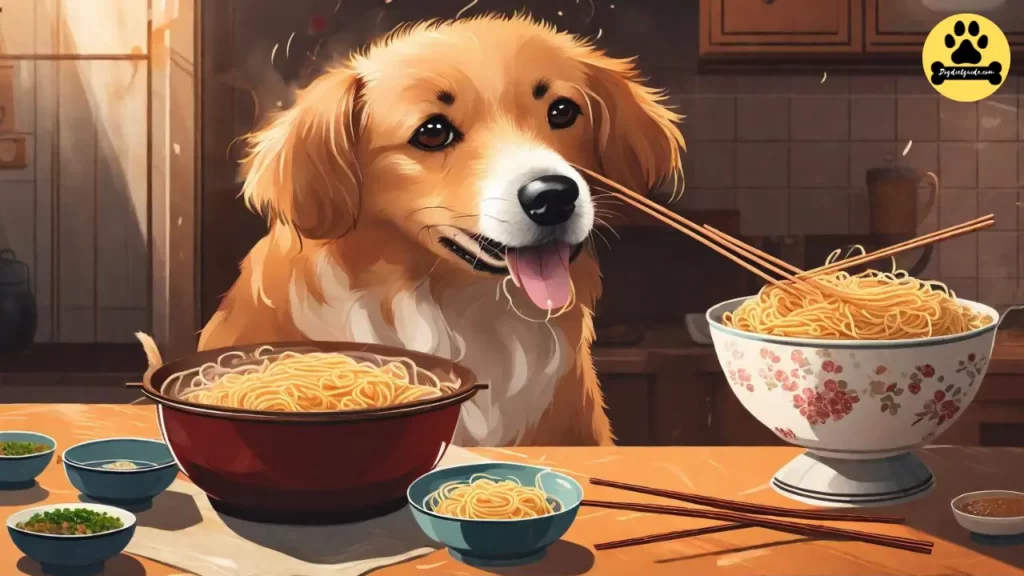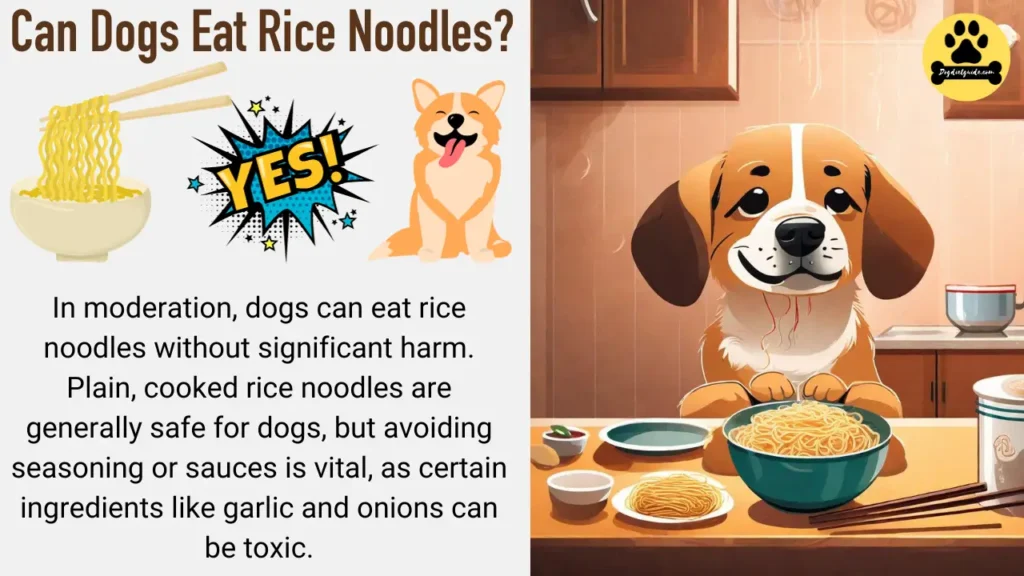In pet nutrition, questions about what dogs can and cannot eat often arise. One common query is whether dogs can safely consume rice noodles. Knowing what you’re feeding your furry friend is crucial as a responsible pet owner.
Rice Noodles For Dogs Overview
In moderation, dogs can eat rice noodles without significant harm. Plain, cooked rice noodles are generally safe for dogs, but avoiding seasoning or sauces is vital, as certain ingredients like garlic and onions can be toxic.
Understanding Canine Dietary Needs
Similar to humans, dogs need a well-balanced diet to thrive. Their nutritional needs encompass a mix of proteins, carbohydrates, fats, vitamins, and minerals.
Before introducing any new food into a pup’s diet, it’s essential to consider how well it aligns with these dietary requirements.
Can Dogs Eat Rice Noodles?
Yes, dogs can eat rice noodles in moderation. However, it’s crucial to ensure that the rice noodles are plain and cooked without adding seasonings, sauces, or ingredients that may harm dogs.
Rice noodles primarily consist of carbohydrates and are low in fat and protein. While they may offer some energy, it’s essential to recognize that dogs have different dietary needs than humans.

Related Post: Can Dogs Eat Ferret Food?
Crucial Factors To Consider
Before incorporating rice noodles into your dog’s diet, consider the following crucial factors:
-
Plain and Unseasoned: Ensure the rice noodles are plain and unseasoned. Avoid adding sauces, spices, or flavorings, as they may contain ingredients that can harm dogs.
-
Moderation: Feed rice noodles in moderation. While they can be a safe addition, excessive consumption may lead to digestive issues or an imbalance in your pup’s diet.
-
Allergies and Sensitivities: Monitor your furry friend for any signs of allergies or sensitivities. Watch for itching, redness, gastrointestinal distress, or unusual behavior that might indicate an adverse reaction.
-
Nutritional Balance: Ensure that rice noodles complement your pet’s dietary requirements. canines need a balanced diet and treats or additions should contribute positively to their health.
-
Avoid High Sodium Content: Be cautious about the sodium content in rice noodles or any accompanying ingredients. High sodium levels can harm a dog’s health, leading to increased thirst, urination, or even sodium ion poisoning.
-
Cooking Method: Use a safe cooking method without excessive oil or salt. Boiling or steaming the noodles is preferable over frying, as it reduces the risk of introducing harmful substances.
-
Observe Behavior: After feeding rice noodles, observe your dog’s behavior and monitor their stool. Any sudden changes or signs of discomfort should be addressed promptly.
Related Post: Is Steaming Hot Food Good For Dogs?
Signs of Allergic Reactions
Even seemingly safe foods can trigger allergies in some dogs. Keep a close eye on signs of allergic reactions in your dog, including itching, redness, or gastrointestinal problems.
If there are any adverse reactions, promptly seek guidance from your veterinarian.
Each dog is distinct, and their dietary requirements can differ. Before making substantial alterations to your dog’s diet, especially when contemplating the introduction of new foods like rice noodles, it is prudent to seek guidance from your veterinarian. They can offer personalized advice, taking into account your dog’s health, age, and breed.




![Can Dogs Eat Blood? 7 Side Effects [Expert Opinion]](https://petskor.com/wp-content/uploads/2022/04/Webp.net-resizeimage-12.jpg)
